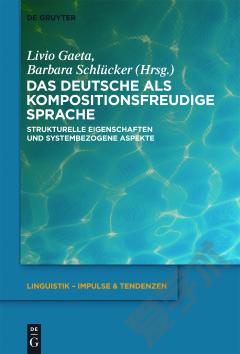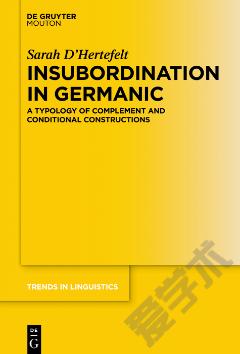Clausal Architecture and Subject Positions. Impersonal constructions in the Germanic languages.
This book offers a comparative study of the Germanic languages. It promotes a new approach to the OV vs. VO classification, according to which all clauses have a universal base where the internal argument is always merged in SpecVP. Word order differences and their correlates result from an interaction of checking conditions, the EPP and different types of verb movement, and from parametric variation concerning the location of the subject of predication in the I- or in the C-system. In the discussion of a range of impersonal constructions in German, Dutch, Afrikaans, Yiddish, Icelandic, the Mainland Scandinavian languages and English, it is shown that crosslinguistic variation as regards, e.g., the distribution of the expletive in impersonal passives and the occurrence of a Definiteness Effect in Transitive Expletive Constructions is mainly due to the choice of different kinds of 'expletive' elements (each associated with different featural make-ups which force them to show up in different positions), namely true expletives, event arguments and quasi-arguments, whereas expletive pro is shown not to exist.
{{comment.content}}








 京公网安备 11010802027623号
京公网安备 11010802027623号